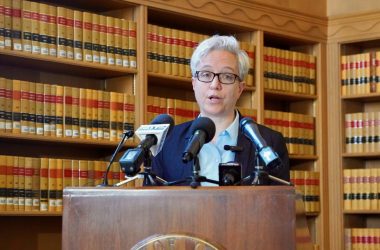Wallowa County commissioners asked the Oregon and Idaho legislatures and governors to start talking in earnest about moving the states’ borders as eastern Oregon counties continue pushing to move to Idaho.
Fourteen eastern Oregon counties have voted to indicate their support for moving the state border, which would turn close to 400,000 Oregonians into Idahoans and give Idaho control of almost two-thirds of Oregon’s land. Crook County is scheduled to vote on a measure during the May 21 primary election.
The county votes don’t do anything to change the Oregon-Idaho boundary – that would require action from both state legislatures and Congress. But they do indicate a deep divide between many rural residents in conservative eastern Oregon and Oregonians in the state’s economic and population hubs in urban Portland and the Willamette Valley.
Letters sent this week by Wallowa County commissioners to Oregon Gov. Tina Kotek, Idaho Gov. Brad Little and the legislatures of both states are an attempt to push the conversation forward at the state level. Idaho lawmakers passed a resolution last year calling for formal talks between the two states, but a similar measure proposed by Sen. Dennis Linthicum, R-Beatty, went unheard in Oregon’s 2023 session.
Wallowa County Commissioners Susan Roberts, Todd Nash and John Hillock wrote that they wanted the state legislatures to begin discussing changing the state border “as soon as feasible.”
“We, as the governing body of Wallowa County, neither support nor oppose the measure but only represent the will of the voters of Wallowa County,” they wrote.
Kotek spokeswoman Elisabeth Shepard told the Capital Chronicle the governor’s office hasn’t yet received the letter. Kotek spent much of last year visiting every county on her One Oregon tour, speaking with constituents throughout Oregon in an effort to learn more about issues facing the state and connect with people working on education, housing and behavioral health issues in different communities.
Oregon Capital Chronicle is part of States Newsroom, a nonprofit network of news bureaus supported by grants and a coalition of donors. Oregon Capital Chronicle maintains editorial independence. Contact [email protected].




